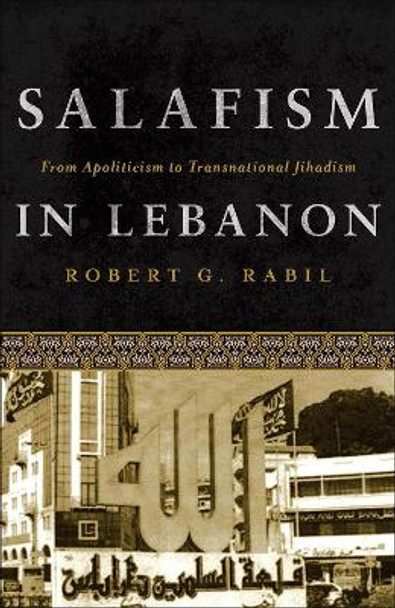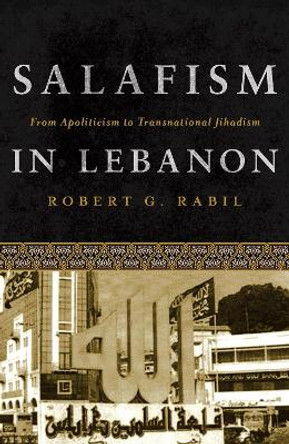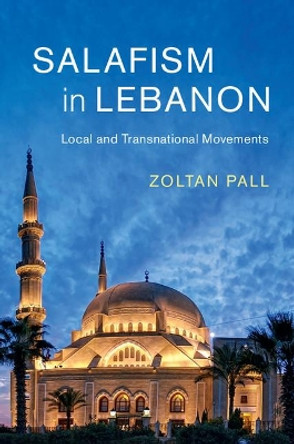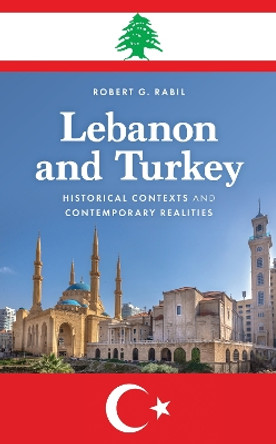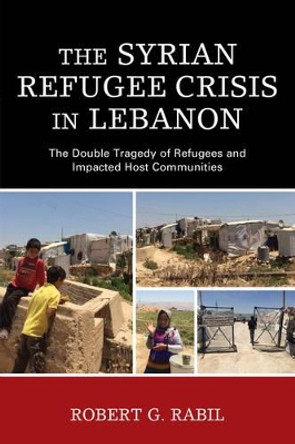Description
Scholarship on political Islam in Lebanon has tended to focus on Hezbollah with little or no regard to Sunni forms of Islamism. Robert Rabil offers us a comprehensive study that brings to the discussion Sunni expressions of radical Islam and demonstrates its many shades and forms. Rabil also places Salafism in Lebanon in the context of Hezbollah's ideology and political action, as well as in a broader regional context. This work is timely as it provides an excellent historical analysis of Islamist streams of thought that operate in Lebanon and that play a major role in the political struggle in the country as well as in the civil war in Syria. -- Asher Kaufman, professor of history and peace studies and director of doctoral studies, Notre Dame University Robert Rabil's new book, Salafism in Lebanon: From Apoliticism to Transnational Jihadism, is a major achievement. This important book underscores the dramatic implications Salafism has for regional and international security. It is an absolutely essential historical and contemporary analysis of Salafism in the Arab world in general and Lebanon in particular. Rabil's in-depth knowledge of the subject and his extensive research provide readers with a clear understanding of the development of Salafism as theology, religious-political ideology, political programing, and as a motivating factor potentially leading to violence. -- Ralph Nurnberger, adjunct professor of liberal studies, Georgetown University The most comprehensive, timely and firsthand account available of the origins, rise, and radicalization of Salafism in Lebanon and beyond. This book is indispensable for a better understanding of the Islamist phenomenon and its roots. -- Sadek J. al-Azm, visiting scholar Weatherhead Center for International Affairs, Harvard University This is a provocative, timely, and engaging book. Robert Rabil has taken the veneer from the Salafist ideology by showing how Lebanon, a "land of secularism, decadence, and pluralism," became a fertile ground for this puritanical movement. This is essential reading for understanding the crisis of Lebanon, and of the modern world. -- Robert Allison, History Department Chair, Suffolk University Contrary to conventional wisdom, Rabil cogently demonstrates that the ideological lines among various Salafists become easily blurred in relation to Jihad as a means to claim the right to defend the Sunni community from internal and external foes. This is a must read book, which is by far the only, and most detailed and up-to-date study on Salafism in Lebanon, shedding the layers of confusion, and sometimes deliberate 'ignorance' wrapping this relatively new prominent religious movement. -- Joseph Alagha , visiting professor of Political Science, Haigazian University Robert Rabil tackles the timely topic of Salafism in Lebanon, the true elephant in the room nowadays amongst the country's myriad challenges. While scholarly concentration of late has been devoted to the dissection of Lebanon's Hezbollah, precious little has been done to investigate radical Sunni counterpart movements with a penchant for violent self-fulfillment. Rabil's work remedies this gap magnificently, as it takes the reader methodically from Salafism's hub in Tripoli with its nascent Saudi influences, through the embracing environment of Lebanon's Palestinian refugee camps, and on to the intolerant Takfiri variety of Salafism. Most insightful is Rabil's sobering analysis of the shortsighted weakness of Lebanon's moderate Sunni leadership in misreading and underestimating both the durability and potential potency of transnational Salafism in their midst. -- Habib Malik, Associate Professor of History, Lebanese American University (Byblos campus) The Salafi movement amongst Lebanese Sunnis has never received much attention in English-language publications. With the Syrian civil war's aggravation of Sunni-Shi'a tensions in Lebanon, Professor Rabil's book could not be more well-timed to fill this gap in the literature. He explains the complex Salafi tendencies and movements in Lebanon in clear, lucid detail. Anyone wishing to understand more about Lebanon and the impact of the Syrian civil war on the region as a whole needs to read this book. -- David Romano, Thomas G. Strong Professor of Middle East Politics, Missouri State University
About the Author
Robert G. Rabil is professor, Department of Political Science, Florida Atlantic University. He is the author of Religion, National Identity, and Confessional Politics in Lebanon: The Challenge of Islamism; Syria, the United States, and the War on Terror in the Middle East; and Embattled Neighbors: Syria, Israel, and Lebanon.
Reviews
Fascinating, well-researched, well-documented, and well-written book ... powerful, topical, compelling, persuasive, and dispassionate history that still at times reads like a novel - not to say a thriller. But this is a thriller that draws heavily on skilled analyses of the history, the rituals, the theology, the epistemology, and the politics of Lebanon and its Salafists. -- Franck Salameh The Levantine Review Gives an excellent historical background for Salifism and does a great job in explaining why so many are attracted to it in this day and age. Olive Branch United
Book Information
ISBN 9781626161160
Author Robert Rabil
Format Hardback
Page Count 272
Imprint Georgetown University Press
Publisher Georgetown University Press
Weight(grams) 454g

